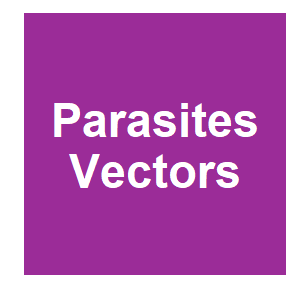Assessing the acoustic behaviour of Anopheles gambiae (s.l.) dsxF mutants: implications for vector control

|
M. P. Su, M. Georgiades, J. Bagi, K. Kyrou, A. Crisanti and J. T. Albert,
Parasites and Vectors,
13:507.
2020.

Release of gene-drive mutants to suppress Anopheles mosquito reproduction is a promising method of malaria control. However, many scientific, regulatory and ethical questions remain before transgenic mosquitoes can be utilised in the field. At a behavioural level, gene-drive carrying mutants should be at least as sexually attractive as the wildtype populations they compete against, with a key element of Anopheles copulation being acoustic courtship. We analysed sound emissions and acoustic preference in a doublesex mutant previously used to collapse Anopheles gambiae (s.l.) cages. More related to this: Stability properties of underdominance in finite subdivided populations Mutant bugs released to fight disease On the role of lethal mutants in the control of populations
|



